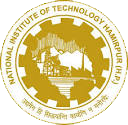मुक्त शैक्षणिक संसाधन / Open Academic Resources
विभिन्न मुक्त शैक्षणिक संसाधनों के नाम तथा लिंक की सूची नीचे दी गई है | इस सूची के पश्चात कुछ संसाधनों का संक्षिप्त विवरण भी दिया गया है |
The list of various Open Academic Resources is provided below. The brief introduction of the same is also being provided after the list.
- शैक्षिक संचार संकाय / Consortium for educational Communication (http://cec.nic.in/)
- e-PG Pathashala (https://epgp.inflibnet.ac.in/Home/Download)
- आईसीएसएसआर तथ्य सेवा / ICSSR Data Service (http://cec.nic.in/)
- विश्लेषणात्मक साधन / Analytic Tool (http://icssrdataservice.in/shiny/analytictool/)
- Massive Open Online Courses (MOOCs) (https://www.mooc-list.com)
- NPTEL (https://nptel.ac.in/course.html)
- Springer Open Access e-Books (Total 1049)

- Virtual Labs: An initiative of MHRD (http://vlab.co.in/)
शैक्षिक संचार संकाय / Consortium for educational Communication (http://cec.nic.in/)
The Consortium for Educational Communication popularly known as CEC is one of the Inter University Centres set up by the University Grants Commission of India. It has been established with the goal of addressing the needs of Higher Education through the use of powerful medium of Television alongwith the appropriate use of emerging Information Communication Technology (ICT).
e-PG Pathashala (https://epgp.inflibnet.ac.in/Home/Download)
e-PG Pathshala is an initiative of the MHRD under its National Mission on Education through ICT (NME-ICT), which provides 25,174 online e-Text/Video on 68 subjects.
आईसीएसएसआर तथ्य सेवा / ICSSR Data Service (http://cec.nic.in/)
विश्लेषणात्मक साधन / Analytic Tool (http://icssrdataservice.in/shiny/analytictool/)
The “ICSSR Data Service” is culmination of signing of Memorandum of Understanding (MoU) between Indian Council of Social Science Research (ICSSR) and Ministry of Statistics and Programme Implementation (MoSPI). The MoU provides for setting-up of “ICSSR Data Service: Social Science Data Repository” and host NSS and ASI datasets generated by MoSPI. The ICSSR Data Service hosts a comprehensive set of statistical datasets in social sciences generated and contributed by the Ministry of Statistics and Programme Implementation (MoSPI), New Delhi. Subsequently, scope of the repository would be expanded to include datasets from all social science institutes under ICSSR's direct purview as well as Government agencies. The ICSSR Data Service is set-up with an aim to support researchers, teachers and policymakers who are heavily rely on high-quality social and economic data for their research.
The platform provides single point access to a wide range of primary datasets including datasets generated by large-scale government surveys i.e. ASI and NSS that provides unit level data as well as qualitative studies. The ICSSR Data Service as a policy, promotes data sharing to encourage the reuse of data and provide information on developing and generating social science research data & its management.
Massive Open Online Courses (MOOCs) (https://www.mooc-list.com)
MOOCs List is an aggregator (directory) of Massive Open Online Courses (MOOCs) offered by different providers. MOOC List is a website where you can find free online courses (MOOCs) offered by the best universities around the world.
NPTEL (http://nptel.ac.in/course.php)
NPTEL is an acronym for National Programme on Technology Enhanced Learning which is an initiative by seven Indian Institutes of Technology (IIT Bombay, Delhi, Guwahati, Kanpur, Kharagpur, Madras and Roorkee) and Indian Institute of Science (IISc) for creating course contents in engineering and science.
NPTEL as a project originated from many deliberations between IITs, Indian Institutes of Management (IIMs) and Carnegie Mellon University (CMU) during the years 1999-2003. A proposal was jointly put forward by five IITs (Bombay, Delhi, Kanpur, Kharagpur and Madras) and IISc for creating contents for 100 courses as web based supplements and 100 complete video courses, for forty hours of duration per course. Web supplements were expected to cover materials that could be delivered in approximately forty hours. Five engineering branches (Civil, Computer Science, Electrical, Electronics and Communication and Mechanical) and core science programmes that all engineering students are required to take in their undergraduate engineering programme in India were chosen initially. Contents for the above courses were based on the model curriculum suggested by All India Council for Technical Education (AICTE) and the syllabi of major affiliating Universities in India.
